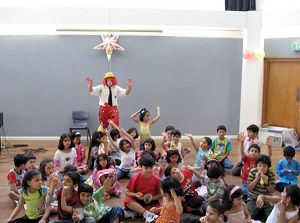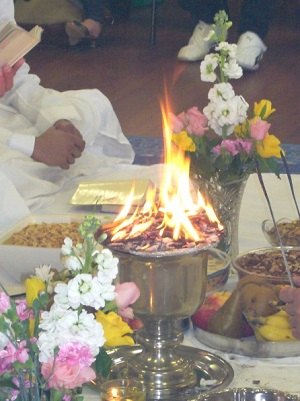 The Zoroastrian Parsee community of New Zealand traces its lineage to the Golden Age of Persia (modern Iran).
The Zoroastrian Parsee community of New Zealand traces its lineage to the Golden Age of Persia (modern Iran).
The Zoroastrian religion, recognised as one of the oldest in the world, was founded and preached in Eastern Iran in 1700 BC by Prophet Zarathustra.
He was among the earliest Prophets to teach monotheism, and his followers prescribed the doctrine of “Good Thoughts, Good Words and Good Deeds.”
Parsees are of Iranian Persian stock, the present day descendants of our forefathers, who fled their homeland in the mid-7th Century AD because of religious discrimination and persecution by invading Arab tribes.
The Journey
The global journey of Zoroastrians began as they sought refuge in a new land rather than forfeit their religion, beliefs, practices and way of life in Persia. They sailed to various parts of the world but the largest contingent was destined to India.
The early settlers chose the west coast of Gujarat and found that the Hindu rules of the era were benevolent. They started a long and harmonious relationship with the people of India, even adopting Gujarati language as their lingua franca and many local customs.
The steely determination of this migrant community coupled by their firm religious beliefs of ‘Ushta Te (Happiness onto others), inspired them with a desire to give back to the country which had offered them a new home.
Pioneering Entrepreneurs
Many Parsee families took on the challenges of trade and commerce and started business ventures, becoming pioneers in various fields. Several of them have become multinationals, known for their spirit of enterprise, corporate and social responsibility and a penchant for community involvement.
The Zoroastrian way of life does not focus on the profit motive and individual opulence. Increasing prosperity in India intensified the tenets of the Zoroastrian faith. Parsees have been givers with a deep sense of integrity and the desire to do the right thing.
They established charities on a massive scale and this large-hearted munificence continues to this day throughout India and abroad.
Kiwi Parsees
Zoroastrians have been always been a small but pragmatic minority in every country of their settlement (including New Zealand). The population of Parsees is declining in India, (currently just 69,000) orchestrated by large migration to other countries.
New Zealand accounted for only one Parsee family 45 years ago. According to Census 2013, there are about 2000 persons of Zoroastrian origin, making this community among the smallest in the country. Most Parsees live in East Auckland (Howick, Pakuranga, Dannemora and Flat Bush). As elsewhere, the community is closely-knit and gets together on social and religious occasions.
 Young Zoros
Young Zoros
Young Zoroastrians strive towards educational and professional excellence. We are first generation migrants in New Zealand and like many other migrant communities, we see the wisdom in drawing a fine line between our past, present and future.
We consider our heritage as priceless, a monumental value system of infinite wisdom. We understand the need to adopt well to change, adjust to new challenges but keenly preserve traditions and cherish our unique identity.
It is our ardent desire that our children would imbibe this legacy and transfer it to ensuing generations, thereby ensuring continuance of the Zoroastrian faith and values.
Quaint mannerisms
Our ‘Parsipano’ comes from our quaint mannerisms, religious values, linguistic closeness and an omnipresent sense of honesty, fair play and righteousness.
The establishment of Zoroastrian Community Associations in New Zealand has allowed the community to stay together as members of one large family. They organise social, religious and cultural activities and most importantly provide a platform for our youth to intermingle and bond within the community.
‘Darb-e- Meher’ in Auckland provides the community a place for worship. Serious efforts are underway to establish a permanent Community Centre.
We celebrate festivals together, hold religious and cultural evenings, conduct prayer classes for the children in the community, host events for seniors and organise sporting activities.
We come together in times of joy and offer comfort and solace in times of grief.
World Youth Congress
It is gratifying that the Auckland based Zoroastrian Youth of New Zealand is organising the Sixth World Zoroastrian Youth Congress in Auckland from December 28, 2015 to January 2, 2016. Supported by the Zarathushtrian Association of New Zealand, the six-day global event has been engaging the younger members of our community in discussions, planning and implementation since the beginning of this year.
More than 400 youth members of the Zoroastrian community across the world will participate in this event. The objective is to create a global platform with the core theme of ‘Embrace, Enhance and Evolve.’ As young Kiwis, the youngsters have adopted the ‘Green Initiative’ reflecting the clean and ecologically strong image of New Zealand.
 Conservation, Youth Responsibility and Civic Consciousness are a few of the many topics that will be debated and discussed by youth representatives. These will be in the context of the Zoroastrian religion, practices and rituals.
Conservation, Youth Responsibility and Civic Consciousness are a few of the many topics that will be debated and discussed by youth representatives. These will be in the context of the Zoroastrian religion, practices and rituals.
Sustainable development
Sustainability the preservation of all our natural resources all over the world will also be a major topic of discussion, as it resonates with the foundations of the Zoroastrian religion. Zoroastrianism is recognised as an environmentally conscious religion aiming to safeguard nature and all natural elements.
The Zoroastrian community is dedicated to the preservation of New Zealand’s legacy and hence will promote all initiatives of our youth and the World Youth Congress.
Rashna Dorab Tata is a former President of the Zarathushtrian Association of New Zealand. She lives with her family in Auckland. Related reports of the forthcoming Youth Congress have appeared in Indian Newslink July 15 and October 1, 2014 issues.






